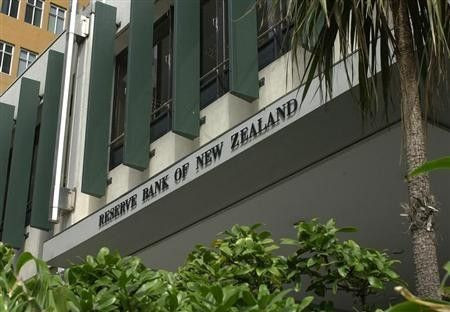New Zealand Wage Inflation Slows While Unemployment Rate Remains At 5.8%

The Reserve Bank of New Zealand will likely cut official interest rates later in the year as the ASB Bank economists predict a 60 percent chance of rate cuts in September and October. The country’s wage inflation has slowed down in the first quarter of the year due to an expanding labour market.
The RBNZ said last week that it was monitoring wages and price-setting outcomes after consumer price inflation fell short of expectations. RBNZ Governor Graeme Wheeler was prompted to lean towards interest rate cuts. After the recent economic data on wages and unemployment was released, the New Zealand dollar fell to 74.91 U.S. cents from 75.54 cents as traders began speculations of weak wage pressures leading to rate cuts.
According to new economic data, New Zealand’s unemployment rate remain unchanged at 5.8 percent, which is higher than the 5.5 percent rate forecast compiled by Reuters. The number of people employed in New Zealand rose 0.7 percent in the quarter while participation rate increased to 69.6 percent.
“This is a greatest share of New Zealanders we have ever seen in the labour force,” said Diane Ramsay, labour market and households statistics manager, in a statement. She added that strong employment growth over the last year was observed with Auckland and Canterbury as the biggest contributors.
New Zealand’s population has been boosted by an increased flow of migration with fewer Kiwis leaving and more expats returning. The increase has helped maintain wage inflation as more people are entering the labour force, reports Stuff. Statistics NZ showed that manufacturing jobs rose to 256,800 in the quarter from 253,200 in the December period. Constructions jobs increased from 204,500 to 212,700 while retail, accommodation and hospitality jobs soared to 371,800 from 359,000.
Craig Elbert, senior economist for Bank of New Zealand, said he believes there is a case for an interest rate cut but it is not as “compelling.” He added that economists need to see more evidence if rates are going to remain low.
Elbert said if the RBNZ will cut rates, the move would add “more fuel to the fire” in Auckland’s housing market. He described the jobs market as “encouraging” and showed that people were more confident in looking for work.
(To report problems or leave feedback on this article, contact r.su@ibtimes.com.au)




















